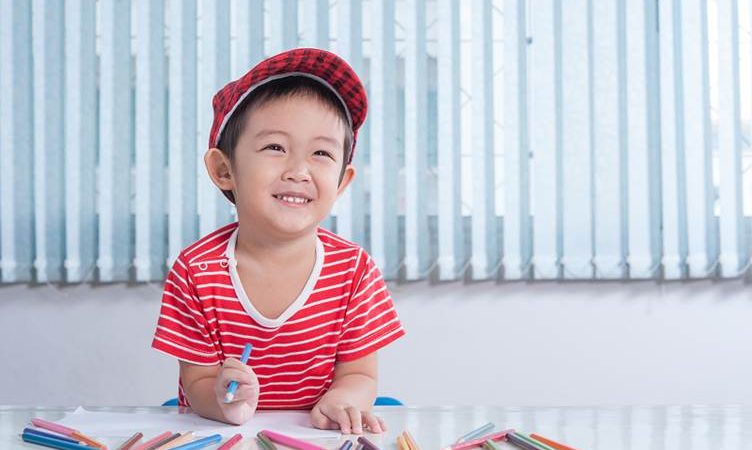These days, parents frequently look for early childhood programs that offer more than just primary school preparation. They seek educational settings that foster self-assurance, curiosity, and accountability. From the time a kid walks into the classroom, a Montessori preschool in Singapore promotes independence.
The Montessori method, well-known for its unique approach to early learning, has steadily grown in acceptance as a comprehensive substitute for traditional methods. Montessori environments encourage self-directed learning and hands-on inquiry, allowing kids to grow at their own rate. When families are weighing their options for a Montessori kindergarten in Singapore, knowing the distinctive ways it fosters independence will help them make a more informed choice.
1. Child-led learning builds decision-making skills
A Montessori preschool in Singapore encourages children to select their own work, in contrast to typical schools where teachers guide most activities. They can manage their time and pursue their hobbies thanks to this independence. They gain confidence in their decision-making abilities and learn to take charge over time, which helps them become more independent as they mature.
2. Prepared environments support independent exploration
The purpose of Montessori classrooms is to encourage self-reliance. Every item has a distinct purpose and is arranged on open shelves for easy access. Youngsters gain the ability to choose, utilise, and return materials on their own. This useful arrangement teaches youngsters the need for structure and order in their environment and encourages responsibility.
3. Mixed-age settings promote mentorship
One of the distinctive features of the preschool curriculum in Singapore, particularly in Montessori environments, is the use of mixed-age classrooms. Younger children learn by observing older peers, while older ones reinforce their knowledge by helping others. This dynamic encourages empathy, patience, and leadership—social skills that develop naturally when children are given space to engage across age groups.
4. Practical life activities foster real-world competence
Everyday tasks such as pouring, buttoning, or sweeping are part of the core Montessori experience. These activities may seem simple, but they serve a vital purpose. By mastering small, achievable tasks, children build hand-eye coordination, concentration, and a strong sense of competence. A Montessori kindergarten in Singapore uses these routines to help children see themselves as capable individuals in control of their actions.
5. Self-correction nurtures personal responsibility
Montessori materials are designed to offer built-in feedback. For example, a puzzle piece that doesn’t fit or a spindle count that doesn’t match prompts the child to try again. Rather than relying on adults for correction, children learn through trial and error. This aspect of the preschool curriculum in Singapore encourages resilience and helps children take ownership of their learning.
6. Uninterrupted work cycles develop focus
Montessori classrooms typically allow extended periods of independent work, free from unnecessary interruptions. This uninterrupted time allows children to enter a state of deep concentration, often called “flow.” With practice, they develop longer attention spans and stronger self-regulation, which serve them well inside and outside the classroom.
7. Teachers act as guides, not directors
Montessori educators observe and support rather than instruct in the traditional sense. Their role is to connect children with appropriate activities and step back once a child is engaged. This respectful approach models trust and helps children feel capable and supported rather than managed. It’s one of the many reasons why a Montessori preschool in Singapore feels calm, purposeful, and child-centred.
8. Individual pacing respects developmental readiness
Not all children learn to write or count at the same time. Montessori respects this by allowing children to progress at their own pace. This reduces comparison and pressure, giving learners space to develop when they are ready. The preschool curriculum in Singapore that adopts Montessori principles often produces confident learners who are not afraid to take on new challenges.
9. Emotional independence is prioritised
Beyond academic skills, Montessori education nurtures emotional growth. Children are encouraged to express their feelings, resolve small conflicts, and participate in daily routines. This focus on emotional self-awareness and self-management plays a key role in developing independence in a holistic sense—not just in tasks, but in thought and feeling too.
10. Independence leads to a love of learning
Perhaps the most lasting benefit of Montessori education is the internal motivation it fosters. When children feel empowered to make choices and see the results of their effort, they begin to associate learning with joy and purpose. A child who loves learning is more likely to carry that enthusiasm into primary school and beyond.
Conclusion
Montessori education offers much more than an alternative learning method—it builds a mindset. By prioritising independence, responsibility, and emotional maturity, a Montessori preschool in Singapore lays a strong foundation for future success. If you’re exploring options that balance academic readiness with real-world confidence, consider a Montessori kindergarten in Singapore that aligns with these values. To learn more about suitable programmes, contact Brighton Montessori.


